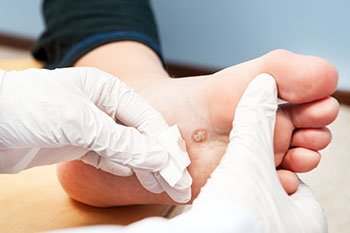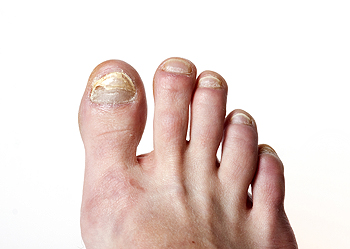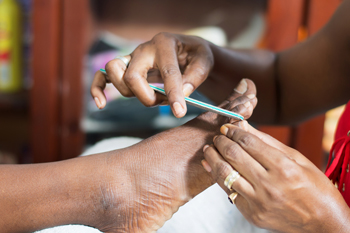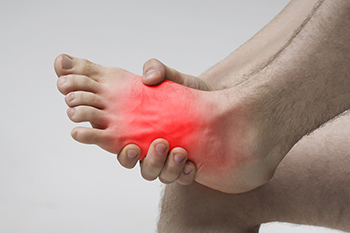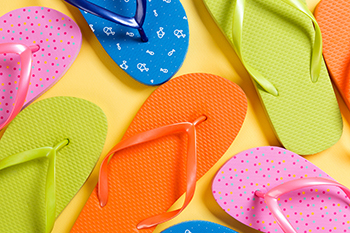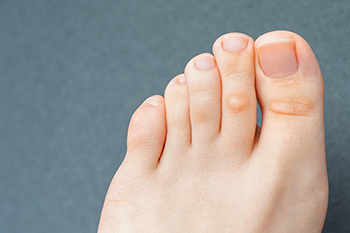
Most women who are pregnant experience some type of foot problem. The most common are swelling, collapsed arches, plantar fasciitis, and dry or cracked heels. Swelling in the feet is generally the result of constricted blood flow to the lower extremities, caused by pressure on the veins in the pelvic region. This results in a condition called edema, where blood and fluids collect in the feet and ankles. A podiatrist can offer simple solutions to this problem. Added weight during pregnancy often results in a collapse of the arches, which may affect stability. Wearing supportive shoes with ample arch support is often recommended by podiatrists. Pain in the heel is generally caused by tears to the band of tissue under the feet, called plantar fascia. Proper footwear and performing a series of exercises can help relieve the pain. Finally, cracked heels may result from a change in hormonal balance during pregnancy that causes a loss in elasticity and moisture in the feet. This can be solved by moisturizing the feet daily. For further help with any type of foot pain during pregnancy, it is suggested that you consult a podiatrist.
Pregnant women with swollen feet can be treated with a variety of different methods that are readily available. For more information about other cures for swollen feet during pregnancy, consult with one of our podiatrists from Canonsburg Podiatry Associates. Our doctors will attend to all of your foot and ankle needs.
What Foot Problems Can Arise During Pregnancy?
One problem that can occur is overpronation, which occurs when the arch of the foot flattens and tends to roll inward. This can cause pain and discomfort in your heels while you’re walking or even just standing up, trying to support your baby.
Another problem is edema, or swelling in the extremities. This often affects the feet during pregnancy but tends to occur in the later stages.
How Can I Keep My Feet Healthy During Pregnancy?
- Wearing orthotics can provide extra support for the feet and help distribute weight evenly
- Minimize the amount of time spent walking barefoot
- Wear shoes with good arch support
- Wear shoes that allow for good circulation to the feet
- Elevate feet if you experience swelling
- Massage your feet
- Get regular, light exercise, such as walking, to promote blood circulation to the feet
If you have any questions please feel free to contact our office located in Canonsburg and McMurray, PA . We offer the newest diagnostic and treatment technologies for all your foot and ankle needs.
